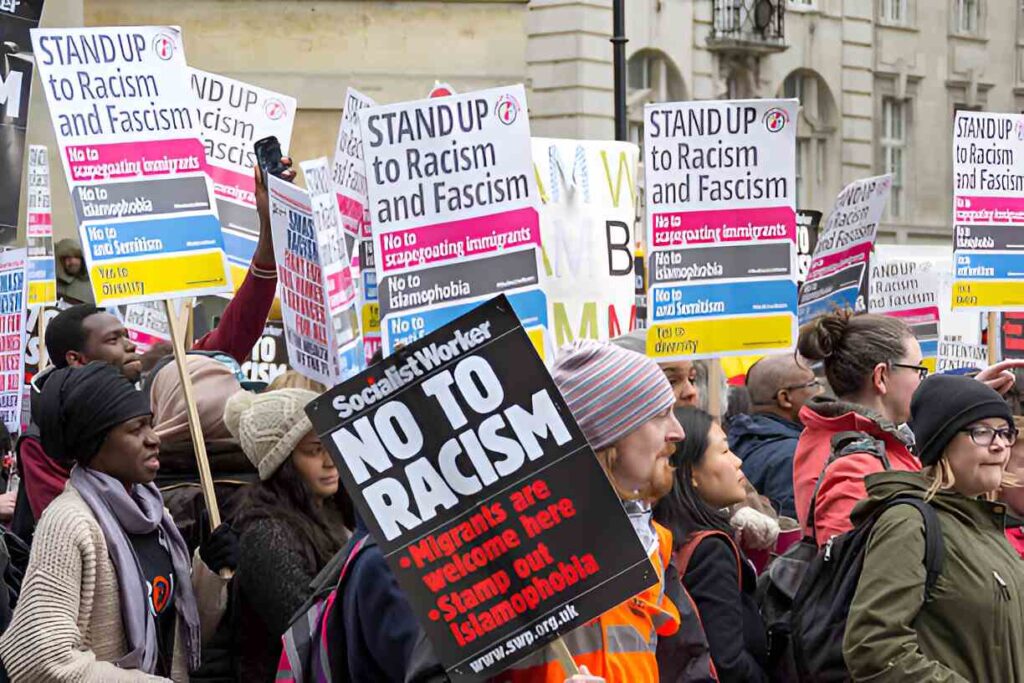Table of Contents
- Introduction
- Historical Context of Media Influence
- Key Mediums Influencing Public Opinion Today
- The Power of Framing and Agenda Setting
- Political Events and Media Coverage
- Challenges and Ethical Considerations
- Conclusion
Introduction
The media is crucial in influencing public perception, especially in British politics. With the proliferation of news outlets and digital platforms, UK politics coverage can significantly affect the perspectives of the populace. The messages conveyed by the media, whether from traditional mediums such as TV and newspapers or modern channels like social media and online news sites, significantly impact how the public views political events and figures. This piece analyzes how the media affects public opinion by examining different aspects of UK political reporting to reveal its impact on societal perspectives.
Historical Context of Media Influence
Media influence is not a new phenomenon. Historically, newspapers, radio, and television have all shaped public discourse. In the UK, landmark events such as the coverage of the Falklands War and the Brexit referendum highlight the media’s capacity to shape public sentiment. For instance, print media once held the sway, providing in-depth coverage and editorial opinions that helped shape public viewpoints. Similarly, radio broadcasts brought real-time updates and analyses into people’s homes, amplifying engagement with political issues. The advent of television further revolutionized this influence by providing visual stimuli that made political events more relatable and impactful to the viewers.
- Early media influence: Newspapers and radio served as primary sources of political information, enabling citizens to stay informed and engaged.
- Television’s impact on political perceptions included the introduction of televised debates and news programs that provided visual and auditory stimuli, making politics more accessible.
- The growth of digital media and internet news has made information sharing more accessible, giving voice to a broader range of perspectives.
Key Mediums Influencing Public Opinion Today
Various mediums shape public opinion today, with digital platforms leading the charge. Social media, online news portals, and blogs offer a plethora of information, often in real-time, and have become primary news sources for many individuals. Social media, for instance, provides a platform for instantaneous sharing and discussion of political news, making it a critical tool for political campaigns. Politicians and parties use social media to reach younger demographics, promote their agendas, and respond directly to public inquiries.
- Social media’s role in political campaigns is pivotal, providing a direct line of communication between politicians and the public and enabling real-time responses.
- Online news portals and their influence have grown exponentially, as they offer 24/7 news access, making it easier for people to stay updated on political developments.
- The rise of citizen journalism and blogs has added diversity to political discourse, allowing ordinary citizens to contribute their perspectives and challenge mainstream narratives.
The Power of Framing and Agenda Setting
How the media frames news stories can significantly affect public perception. The concept of agenda setting explains how media outlets can dictate the importance placed on particular issues. Media framing involves presenting news stories in a specific light, emphasizing certain aspects while downplaying others. This can shape the public’s opinions on political matters by highlighting particular viewpoints. Moreover, studies show how presented news can enhance or diminish its perceived importance, influencing the public agenda.
Political Events and Media Coverage
Several political events in the UK provide a clear illustration of media influence. We can gain a deeper insight into the action dynamics by analyzing these events. For instance, extensive media coverage of the Brexit Referendum shaped public opinion leading up to the vote. Various news outlets’ portrayal of the Brexit campaign played a crucial role in informing, persuading, and even confusing the public about the consequences of leaving the European Union. Additionally, the portrayal of candidates and party platforms can sway voter preferences during general elections. Scandals and controversies often garner widespread media attention, with the media’s role in exposing and framing these stories affecting public opinion and potentially altering political careers.
- Brexit Referendum: Extensive media coverage shaped public opinion leading up to the vote, affecting how the public perceived the benefits and drawbacks of leaving the EU.
- General Elections: The media’s portrayal of candidates and party platforms can significantly influence voter preferences, sometimes overshadowing policy details.
- Scandals and Controversies: The media’s role in exposing and framing political scandals can lead to shifts in public trust and affect political trajectories.
Challenges and Ethical Considerations
The media’s power to influence public opinion also brings significant ethical considerations. Issues such as fake news, biased reporting, and the pressure to sensationalize stories for higher ratings are prevalent. Misinformation and spreading phony news significantly threaten public perception, undermining trust in media fairness and accuracy. Whether intentional or unintentional, bias in media reporting can distort public understanding and independent decision-making. The pressure for sensationalism often leads media outlets to prioritize eye-catching stories over factual integrity, further complicating the media landscape.
- Misinformation and spreading fake news undermine public trust and create confusion and distrust.
- Bias in media reporting, whether through selective coverage or skewed representation, can mislead the public.
- Pressure for sensationalism, driven by competition for viewership and clicks, can compromise factual integrity.
Conclusion
The media’s role in shaping public opinion, especially concerning UK politics, cannot be understated. Understanding the historical context, the mediums involved, and the ethical challenges, we know how public perception is molded. Due to the rise of digital media, it is now essential to critically evaluate media content as its influence has grown in scope and immediacy. Fostering media literacy and promoting balanced reporting are crucial to ensuring an informed and empowered populace. Encouraging critical thinking and discerning consumption of media content can help the public navigate the complexities of modern political discourse.



